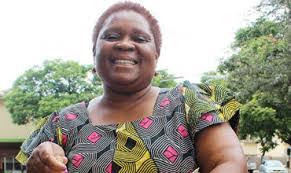
MATABELELAND South senator Sithembile Mlotshwa has accused the government of failing to construct enough schools in the region, a development she said was behind the spike in teenage pregnancies and child marriages.
Mlotshwa said the girl child in the region was forced to drop out of school because the education institutions were either few or several kilometres away.
According to the World Bank, in 2020, 45% of girls in Zimbabwe were married before the age of 18.
This means that thousands of girls are forced to drop out of school and are subjected to physical and emotional abuse.
In 2020, available statistics indicate that 21% of girls in Zimbabwe were pregnant or were already mothers before the age of 18.
“In Matabeleland South, we are already falling behind in many ways,” Mlotshwa said during debate in the Senate last week.
“Our schools are under-resourced, our roads are poor, our infrastructure is crumbling, but if we do not take concrete action to address the issue of teenage pregnancies and its impact on girls’ education, we will be condemning an entire generation of girls to a life of poverty and marginalisation.”
Mlotshwa said Matabeleland South had a long history of gender-based violence, child marriages and early pregnancies because of lack of access to schools.
- Zipra cries foul over vetting process
- Govt extinguishes Warriors’ Afcon dream
- British investor makes new claim over CSC . . . Boustead says it took over full control of the beef processor in 2019
- Zifa, SRC war escalates. . . Explosive dossier bares all
Keep Reading
“As a representative of Matabeleland South, I can attest to this issue. It is not just statistics, but a reality that is dire and acute,” she said.
“Rural children in our region often have to walk many kilometres to school, braving the harsh weather conditions and the lack of infrastructure.
“This makes it even more challenging for girls to access education as they are often expected to take on household chores and care for their siblings.
“It is not just physical challenges that our girls face; it is societal and cultural norms that perpetuate discrimination and marginalisation.”
Mlotshwa urged the government to take concrete action to address the issue of teenage pregnancies and its impact on girls’ education.
“We need comprehensive support services for teenage mothers including access to health care, counselling and financial services,” she said.
“We need schools that have the necessary resources and infrastructure to support pregnant students.
“There is no future without a girl child and particularly, there is no future without mothers.”
President Emmerson Mnangagwa’s government has been accused of perpetuating the marginalisation of Matabeleland, which was entrenched by the regime of his predecessor Robert Mugabe.
Critics say Mnangangwa has been dragging his feet in the implementation of the devolution policy that is meant to ensure local authorities utilise resources in their jurisdiction for development.






